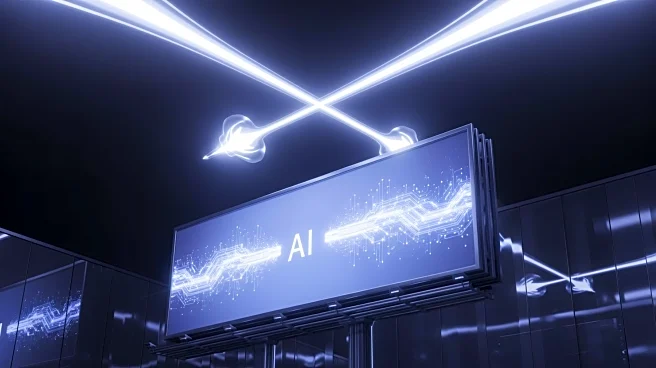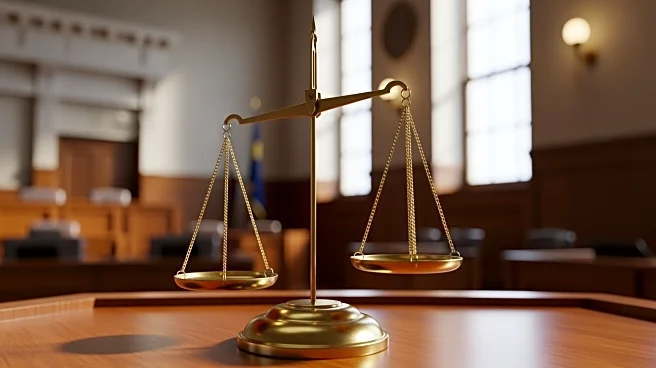What's Happening?
Kim Kardashian, co-founder of SKIMS and aspiring lawyer, revealed in a Vanity Fair interview that she used ChatGPT to answer legal questions while preparing for her law school exams. The AI chatbot frequently provided incorrect answers, contributing to her failure
in multiple legal tests. Kardashian's experience has reignited debate about the dangers of using generative AI in high-stakes professional contexts. Experts warn that AI-generated hallucinations can undermine public trust, create legal liabilities, and mislead both students and practicing professionals. Despite setbacks, Kardashian plans to retake the California bar exam and continue her legal studies.
Why It's Important?
The use of AI tools like ChatGPT in legal settings raises significant concerns about their reliability and accuracy. As AI adoption grows across various sectors, the potential for misinformation and legal errors increases. Kardashian's experience highlights the limitations of AI in providing accurate legal advice, emphasizing the need for human verification and expertise. The legal profession has documented instances of lawyers submitting court documents with non-existent citations generated by AI, leading to disciplinary actions. This underscores the importance of maintaining traditional standards of professional responsibility when using AI in legal contexts.
What's Next?
Legal experts agree that generative AI will likely remain a staple in professional practice, but emphasize that AI tools should serve only as a starting point, subject to rigorous human verification. Kardashian's experience serves as a cautionary tale for students, professionals, and the public to approach AI outputs with skepticism. The consensus is that AI should not be a substitute for qualified legal advice, and traditional standards of professional responsibility must be upheld.
Beyond the Headlines
The ethical implications of relying on AI for legal advice are significant. AI's ability to generate plausible-sounding but incorrect information poses risks to legal education and practice. Overreliance on AI by those learning the law might stunt their development as lawyers, as AI can hallucinate and make up cases. The legal profession must navigate the challenges of integrating AI while ensuring accuracy and accountability.















